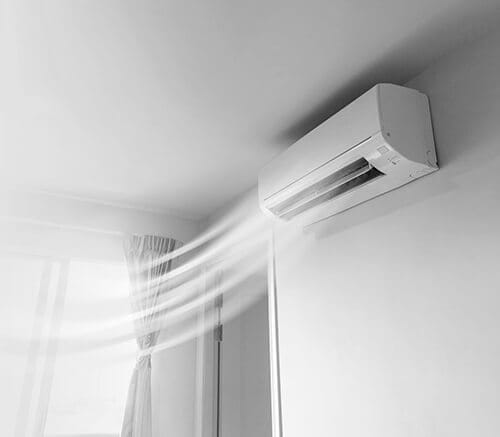The Cons of a Mini-Split System

If you’re a homeowner trying to decide on the best heating and cooling system for your home, there are many factors to consider. Mini-split systems have become increasingly popular for both residential and commercial purposes. They are efficient, cost-effective, and nearly silent. However, these systems are not without their drawbacks. Here are the potential disadvantages of mini-split systems to help you decide if they’re right for your space.
1. Costly Installation
Installing a mini-split system can be more expensive than other HVAC systems. For starters, these systems typically require a larger initial investment due to how they are designed, as they feature components inside and outside the home. Additionally, because mini splits use multiple indoor air handlers, installation costs may increase as additional equipment is required for setup. Also, labor costs are likely higher, considering the expertise needed for proper installation and operation. Homeowners who wish to enjoy the benefits of this type of system should consider all of these factors before investing in one.
2. They Require More Space to Install
Although an individual unit is relatively small, additional room is needed when considering the lines running between the outdoor condenser and an indoor evaporator. This can be a problem in homes with limited space and no outside access to the components, like condensers and air handlers. Additionally, if the indoor unit needs to be located on an exterior wall, holes must be cut into the wall to properly access the ventilation pipe and wiring properly, reducing usable space. This extra space can be difficult to find in a crowded home or business, making it challenging to install one without sacrificing valuable square footage from storage or living areas.
3. Challenges in Maintenance and Repair
Unlike other HVAC systems, mini-split systems require that the ductless units first be removed from the wall before any repairs occur. This labor-intensive process can often mean increased costs if issues arise since it requires extra time, effort, and equipment to handle this task. Generally speaking, repairing a mini-split system is more expensive than a traditional centralized HVAC system due to this additional step.
Rely on the Professionals
Mini-split systems offer several advantages compared to traditional HVAC systems, such as lower energy bills and easier installation requirements. However, there are drawbacks, such as higher initial costs and possible noise issues from the outdoor compressor unit. Homeowners and business owners need to weigh both sides before deciding whether this system is right for them. Ultimately, understanding the pros and cons of mini-split systems will help you determine your cooling needs. When deciding whether a mini-split system is the right choice for your home, consider talking to an HVAC specialist from Savannah Air Factory to get the necessary advice tailored to your situation.
We also offer comprehensive heating, cooling, and indoor air quality services in Savannah, GA and the surrounding areas. Some solutions include repairing and installing heating systems, air conditioners, ductless systems, hybrid heat services, dehumidifiers, and air filtration. Contact Savannah Air Factory today for outstanding HVAC and indoor air quality services.